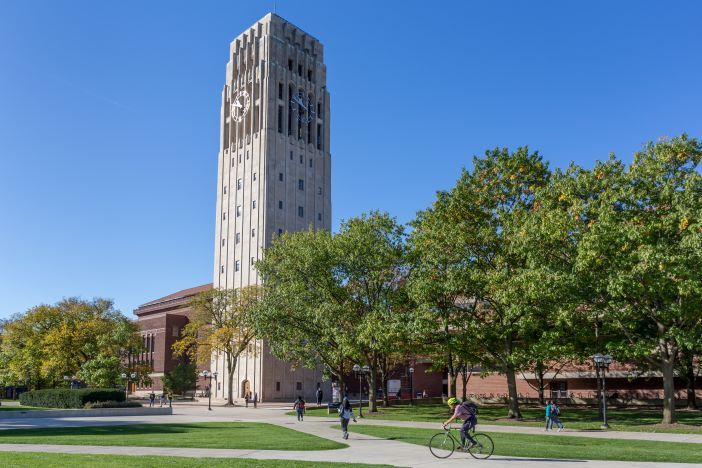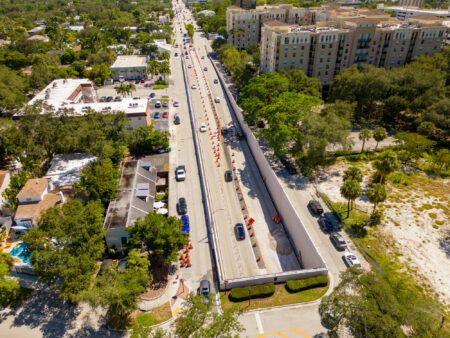The US state of Michigan is enabling four new mobility services to help address challenges related to sustainable transit, roadway safety, parking, and staffing shortages in the service industry.
In partnership with key universities, four companies – Bluecity, Gekot, Mouvit and Nimbus – will receive US$285,000 in total funding through the Michigan Mobility Funding Platform (MMFP) to test and deploy mobility projects across the state, including in Ann Arbor, Rochester, Dearborn, Novi and Farmington Hills.
Bluecity (US$100,000 – Ann Arbor)
In partnership with the University of Michigan (UM), MCity and Velodyne Lidar, Bluecity will deploy its real-time traffic monitoring and data analytics solution at five different intersections across Ann Arbor to study road users’ behavior.
The technology, which uses lidar sensors and artificial intelligence (AI), will enable the city to monitor key safety metrics 24/7 – including traffic conflicts, speeding and red-light runners – and proactively improve the safety of vulnerable road users.
Bluecity’s detection algorithm will also provide the city of Ann Arbor with detailed signal performance measures to optimize traffic light timing and operations. Using these analytics, Ann Arbor will ultimately be able to identify operational issues and enable new procedures to advance traffic systems, improving safety and convenience for roadway users in the process.
Additionally, UM partners will be able to build new applications on top of Bluecity’s standard solution, including sharing real-time traffic data with connected vehicles.
Gekot (US$70,000 – Rochester)
Gekot will integrate its technical solutions package into Razor USA electric scooters soon to be deployed on the campus of Oakland University. The “add-on” electronics package introduces a suite of low-cost solutions designed to mitigate collisions with hazards while deterring theft, abuse and misuse of rental scooters. The campus-wide study will evaluate the effectiveness of Gekot’s solutions.
The Gekot team is working to establish Detroit as the center of engineering excellence in micro-mobility and light electric vehicles. Currently, the key players in this industry are located on the West Coast and internationally. The intention is that electric scooter and e-bike companies will soon consider Detroit expertise to develop their vehicles.
Usage and system performance data from the OU e-scooter deployment will inform future wide-scale development and assist Gekot in building the bridge between the West Coast and Detroit markets.
Mouvit (US$100,000 – Dearborn, Novi, Farmington Hills)
Mouvit, in partnership with Intent Design, Stantec, Lawrence Technological University, Camaco, Henry Ford Museum and Novi Bowl, will use autonomous robots to help minimize staffing shortages, and ultimately improve the customer experience at three key Michigan locations.
Nimbus (US$15,000)
With a US$15,000 MMFP testing grant, Nimbus will test and develop its compact EV at the proving grounds of Kettering University’s GM Mobility Research Center. Ultimately, the EV will be deployed in urban areas as both a private and communal method of transportation.
The Nimbus vehicle produces roughly 10% of the emissions of a full-sized car, and only one-third of the emissions that a traditional EV would produce. It has been designed to travel more than 90 miles on a single charge, and its slim build allows it to both auto stabilize around sharp turns as well as navigate and park in spaces too small for traditional passenger vehicles. Additionally, its sensing and AI capabilities monitor the road and help to prevent accidents.
Nimbus is currently accepting pre-orders for its compact EV.
Images: Adobe Stock





